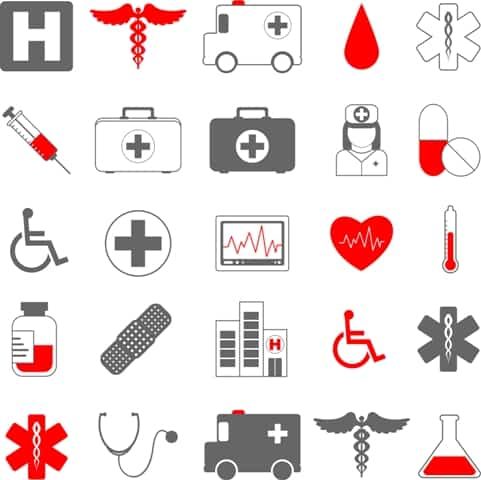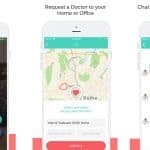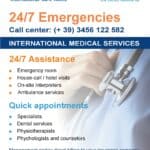Here is some information on what to do in case your lots-of-coffee-and-wine-a-day-keeps-the doctor-away strategy fails you…
In Italy, the National Health Service (Servizio Sanitario Nazionale) runs a health insurance system. In each region, local health authorities (Aziende Sanitarie Locali) manage registration for the national system by issuing healthcare cards (Tessere sanitarie). According to the SSN, ‘A foreign citizen living in Italy, with a valid Permit of Stay has the same rights as Italian citizens to medical assistance assured by the [NHS].’ Cardholders do not pay for medical treatment (or at most pay a minimal fee), including emergency services and some dental treatments.
The European Union (EU) states that in Italy all citizens, residents and foreigners in possession of specific requirements have the right to general medical assistance provided by a general practitioner, and for those under 14, a paediatrician. An EU citizen country arriving in Italy with form E111/European Health Insurance Card (EHIC or TEAM card) has the right to urgent medical treatment. If they present the form to the relevant local health authority they can receive medical treatment equivalent to that available to an Italian citizen. Registration with the national health system is effected by choosing a general practitioner or a paediatrician registered on the relevant list available at the district offices of the ASL. A health card is issued at the time of registration, which must be presented in order to receive health services.
So, as an EU citizen, your EHIC card covers you for free healthcare in public hospitals for the majority of services. It will not cover you for repatriation in an emergency or non-emergency situation. If you remain in Italy for longer than three months then you must register with the SSN.
Non-EU citizens should enquire with their embassies as to whether a healthcare agreement exists with Italy. For example, Australians carrying their Medicare card are covered (up to a period) in Italy thanks to a reciprocal arrangement between the two countries. For non-EU citizens there are also conditions and time periods under which you must register with the national health system depending on your type of visa.
You can dial 118 for an ambulance from anywhere in Italy. To receive emergency treatment, visit the pronto soccorso of any public hospital. Most pharmacies follow standard Italian shopping hours, following some late night pharmacies in Rome: Piazza dei Cinquecento; Piazza della Repubblica 67; Via Nazionale 228; Piazza Barberini 49; Corso Rinascimento 50; Via Cola di Rienzo 213/215; Piazza Risorgimento 44; Via Arenula 73; Viale Trastevere 229.
FOR THE DETAILS FOR SOME ENGLISH-SPEAKING MEDICAL PRACTITIONERS IN ROME visit:
https://www.romeing.it/english-speaking-doctors-rome/





